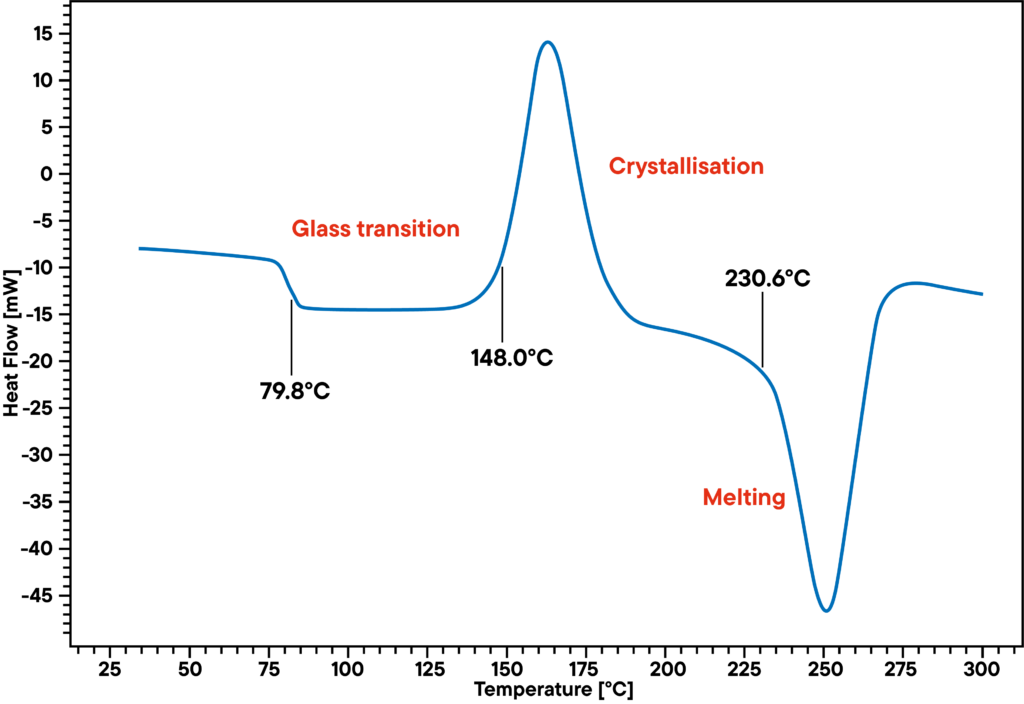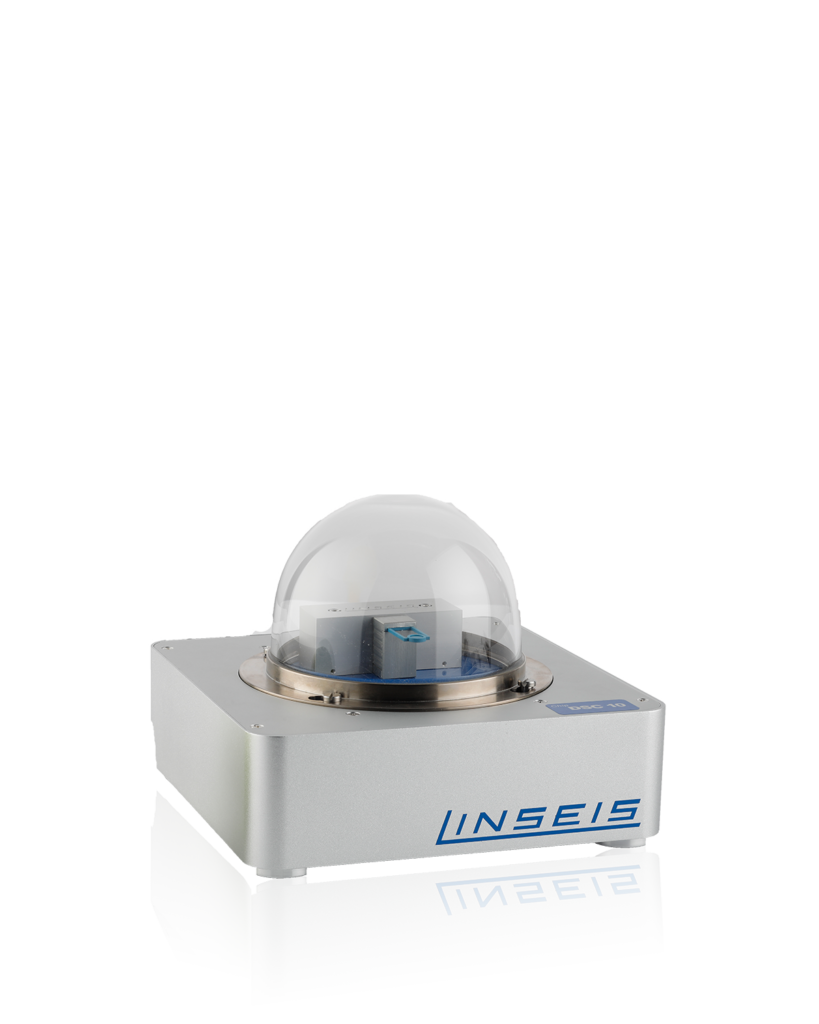The analysis of polymers is one of the main applications of DSC (Differential Scanning Calorimeter). Effects like glass transitions, melting and crystallization points are of interest and often very hard to detect. The new Chip-DSC provides high resolution and sensitivity, combined with high heating and cooling rates, making it an ideal instrument for this kind of analysis.

As an example, a PET (polyethylenetherephtalate) granulate was heated, quench cooled to freeze the amorphous state and afterwards analyzed by Chip-DSC with a linear heating rate of 50 K/min. The resulting curve shows a significant glass transition around 80°C, followed by a cold crystallization of the amorphous parts starting around 148°C and a melting peak at 230°C.
The enthalpy of the cold crystallization peak can be used to determine the degree of crystallinity by comparison with the enthalpy of pure crystalline PET. Depending on the thermal history of the sample, the grade of crystallinity changes and therefore can be used as indicator for the history and mechanical behavior of the polymer.

